
Isaac Stern was an American violinist.

The term string quartet can refer to either a type of musical composition or a group of four people who play them. Many composers from the mid-18th century onwards wrote string quartets. The associated musical ensemble consists of two violinists, a violist, and a cellist.
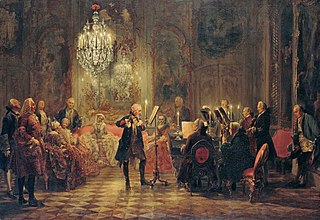
Chamber music is a form of classical music that is composed for a small group of instruments—traditionally a group that could fit in a palace chamber or a large room. Most broadly, it includes any art music that is performed by a small number of performers, with one performer to a part. However, by convention, it usually does not include solo instrument performances.
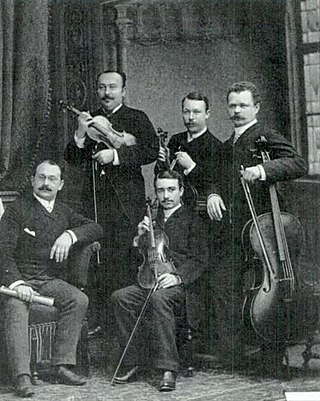
In classical music, a piano quintet is a work of chamber music written for piano and four other instruments, most commonly a string quartet. The term also refers to the group of musicians that plays a piano quintet. The genre particularly flourished during the nineteenth century.
The Takács Quartet is a string quartet founded in Budapest, Hungary, and now based in Boulder, Colorado, United States.
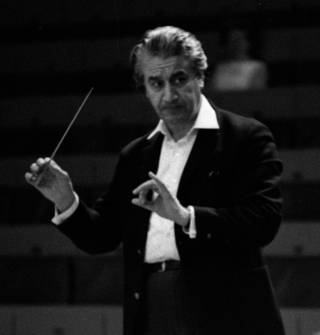
Sergiu Celibidache was a Romanian conductor, composer, musical theorist, and teacher. Educated in his native Romania, and later in Paris and Berlin, Celibidache's career in music spanned over five decades, including tenures as principal conductor of the Munich Philharmonic, Berlin Philharmonic, Sicilian Symphony Orchestra and several other European orchestras. Later in life, he taught at Mainz University in Germany and the Curtis Institute of Music in Philadelphia, Pennsylvania.
Katrine Gislinge is a Danish pianist.

The Lindsay String Quartet was a British string quartet from 1965 to 2005.
The Gramophone Classical Music Awards, launched in 1977, are one of the most significant honours bestowed on recordings in the classical record industry. They are often viewed as equivalent to or surpassing the American Grammy award, and referred to as the Oscars for classical music. They are widely regarded as the most influential and prestigious classical music awards in the world. According to Matthew Owen, national sales manager for Harmonia Mundi USA, "ultimately it is the classical award, especially worldwide."

The Melos Quartet was a much-recorded, Stuttgart-based string quartet active from 1965 until 2005, when its first violin died. It also went by the name Melos Quartett Stuttgart, partly to distinguish itself from the equally prominent chamber group the Melos Ensemble of London.

The Paganini Quartet was an American string quartet founded by cellist Robert Maas and violinist Henri Temianka in 1946. The quartet drew its name from the fact that all four of its instruments, made by Antonio Stradivari (1644–1737), had once been owned by the great Italian violinist and composer Niccolo Paganini (1782–1840).
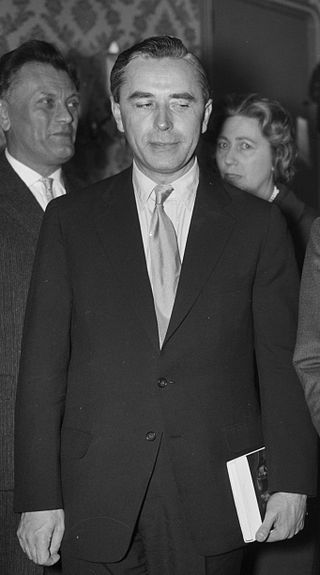
Rudolf Firkušný was a Moravian-born, Moravian-American classical pianist.
Discography for the cellist Yo-Yo Ma.

The Fine Arts Quartet is a chamber music ensemble founded in Chicago, United States in 1946 by Leonard Sorkin and George Sopkin. The Quartet has recorded over 200 works and has toured internationally for 77 years, making it one of the longest enduring major string quartets. In its history, the Quartet has had two leaders: Leonard Sorkin, from 1946 to 1981, and Ralph Evans, from 1982 to the present. Its current members are violinists Ralph Evans and Efim Boico, violist Gil Sharon, and cellist Niklas Schmidt.

Josef Suk was a Czech violinist, violist, chamber musician and conductor. In his home country he carried the title of National Artist.
The Hungarian String Quartet was a musical ensemble of world renown, particularly famous for its performances of quartets by Beethoven and Bartók. The quartet was founded in Budapest in 1935 and was disbanded in 1972.
Leonard Hokanson was an American pianist who achieved prominence in Europe as a soloist and chamber musician.
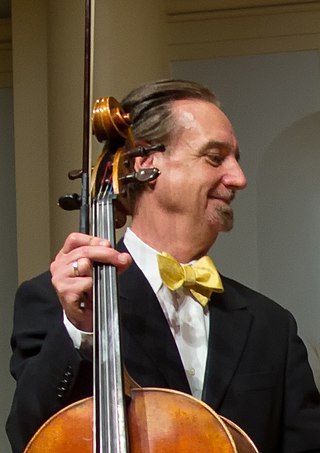
David Finckel is an American cellist and influential figure in the classical music world. The cellist for the Emerson String Quartet from 1979 to 2013, Finckel is currently the co-artistic director of the Chamber Music Society of Lincoln Center in New York, co-founder of the independent record label ArtistLed, co-artistic director and co-founder of Music@Menlo in Silicon Valley, producer of Cello Talks, professor of cello at the Juilliard School, and visiting professor of music at Stony Brook University.
The Busch Quartet was a string quartet founded by Adolf Busch in 1919 that was particularly noted for its interpretations of the Classical and Romantic quartet repertoire. The group's recordings of Beethoven's Late String Quartets are especially revered.
In music, Op. 1 stands for Opus number 1. Compositions that are assigned this number include:












